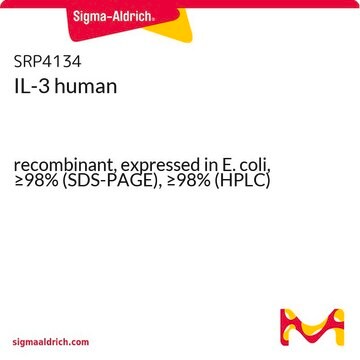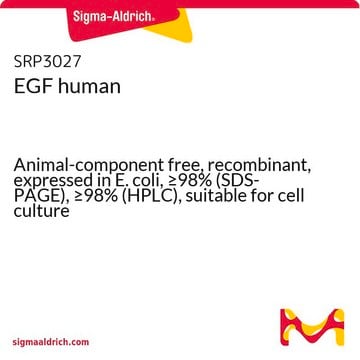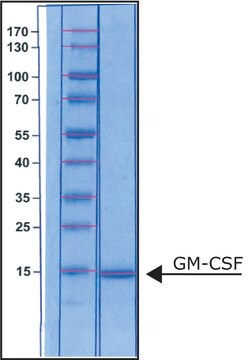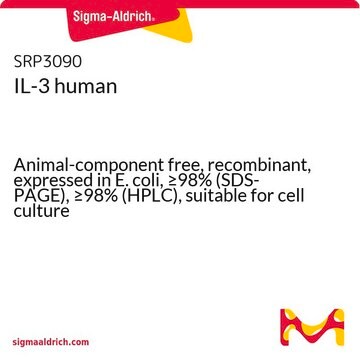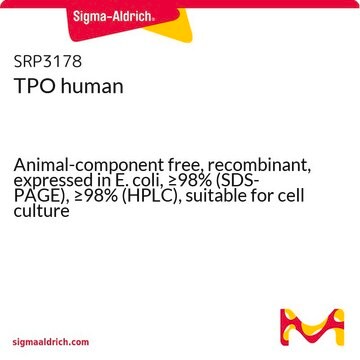H8416
Stem Cell Factor human
≥95% (SDS-PAGE), recombinant, expressed in HEK 293 cells, lyophilized powder, suitable for cell culture
Synonym(s):
SCF, c-Kit ligand
About This Item
Recommended Products
product name
Stem Cell Factor human, SCF, recombinant, expressed in HEK 293 cells, suitable for cell culture
biological source
human
Quality Level
recombinant
expressed in HEK 293 cells
Assay
≥95% (SDS-PAGE)
form
lyophilized powder
potency
≤200 ng/mL ED50
quality
endotoxin tested
mol wt
dimer 35-45 kDa (glycosylated)
packaging
pkg of 5x10 μg
pkg of 10 μg
pkg of 100 μg
storage condition
avoid repeated freeze/thaw cycles
technique(s)
cell culture | mammalian: suitable
impurities
≤1 EU/μg
UniProt accession no.
storage temp.
−20°C
Gene Information
human ... KITLG(4254)
Looking for similar products? Visit Product Comparison Guide
General description
Biochem/physiol Actions
Preparation Note
Analysis Note
Legal Information
Storage Class Code
11 - Combustible Solids
WGK
WGK 2
Flash Point(F)
Not applicable
Flash Point(C)
Not applicable
Certificates of Analysis (COA)
Search for Certificates of Analysis (COA) by entering the products Lot/Batch Number. Lot and Batch Numbers can be found on a product’s label following the words ‘Lot’ or ‘Batch’.
Already Own This Product?
Find documentation for the products that you have recently purchased in the Document Library.
Customers Also Viewed
Articles
Read article on hematopoietic cytokines and hematopoiesis
Role of growth factors in stem cell differentiation and various growth factors for your research at sigmaaldrich.com
Our team of scientists has experience in all areas of research including Life Science, Material Science, Chemical Synthesis, Chromatography, Analytical and many others.
Contact Technical Service




